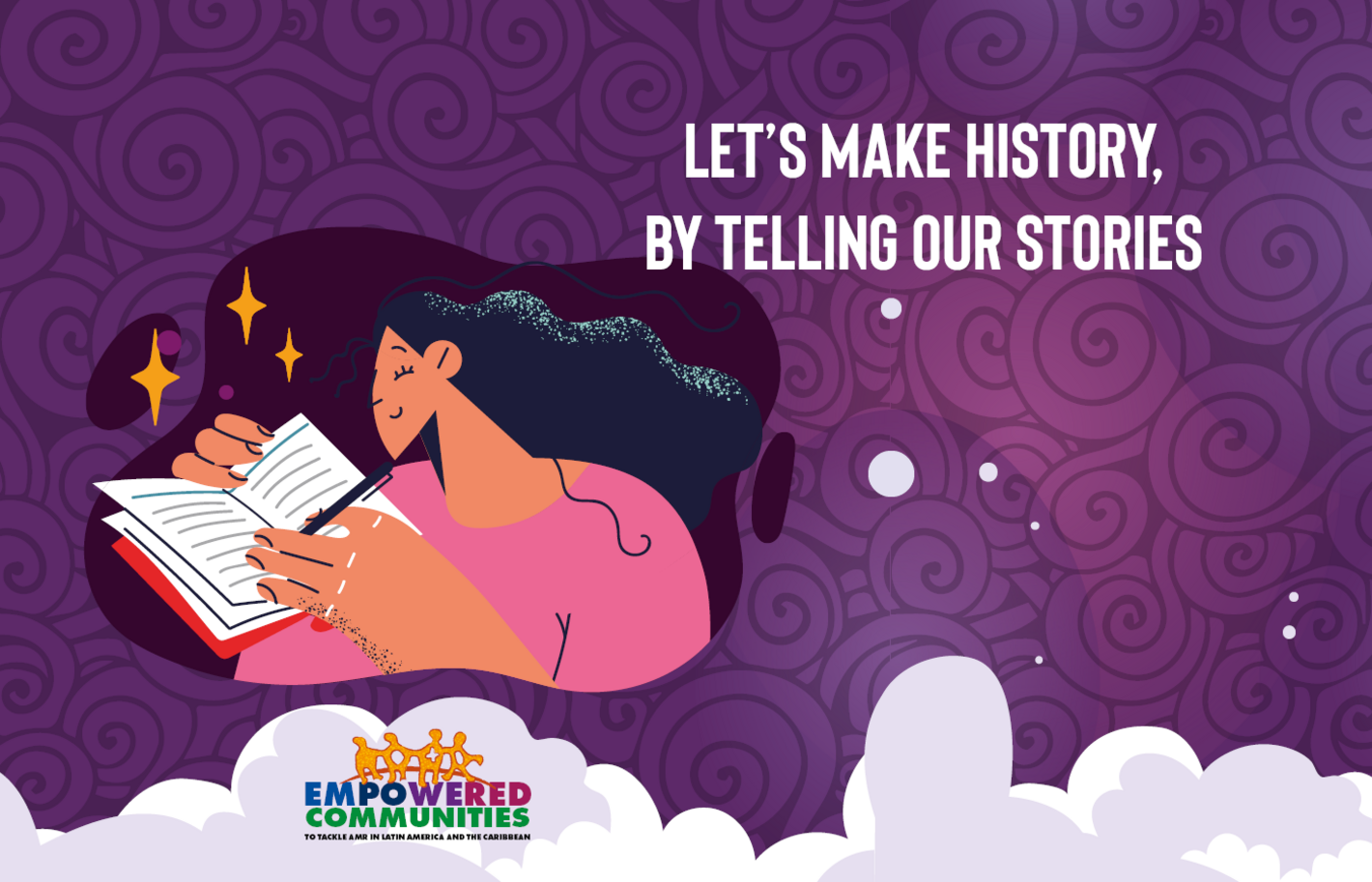Let's Make History by Telling Our Stories.
Deadline: April 2025
Under the initiative Empowered communities against Antimicrobial Resistance in Latin America and the Caribbean, ReAct Latin America, Pan American Health Organization, and the South Center call for stories of infections, bacterial resistance and antibiotics.
Let's Make History by Telling Our Stories is an open call to write stories about health from Latin America and the Caribbean. Stories like...
...the story of a young mother who, after overcoming a multidrug-resistant infection, promotes the responsible use of antibiotics in her community. The story of a rural doctor who collects leftover antimicrobials for use in other patients. The story of a child who, growing food in his school garden, discovers that are microbes the little cooks of the plants.
As you can see, the thematic range is broad. There are many, many stories to tell. They just have to be related to infectious diseases, antimicrobial infectious diseases, the use of antimicrobials, hand hygiene, or the role of microbes in health. Check out the selected stories here to get inspired.
Who can participate?
Anyone who has lived through or knows a story about the above-mentioned issues in Latin America and the Caribbean. It does not matter where you are from or what your nationality is!
What are the requirements?
Stories must be sent to us in writing. The maximum length is 3 pages. Texts will be accepted in Spanish and English.
How will the stories be selected?
Stories will be reviewed and selected by a jury made up of health professionals, communication specialists, and educators, from Latin America and the Caribbean.
The best three stories (those with the highest scores) will be presented at the annual Meeting of “Empowered communities against Antimicrobial Resistance in Latin America and the Caribbean”.
What criteria will the jury consider selecting the best stories?
The story should leave a lesson learned or show the impact of the action taken to combat infections and antimicrobial resistance. The text should be clear and creative.
Send your stories to:
- Dr. Nathalie El Oimeiri: elomeirin@paho.org
You can start by answering four questions:
- Who?: A story always has a character. Who is your character?
- What?: A story always has actions. What does your character do?
- Where?: A story always takes place in one place. Where does your character act?
- When?: A story always takes place in time. In what time does your character act?
From there you can enrich your story with other characters, situations, dreams, motivations, conflicts, achievements?
Let’s get started!
1) Which countries can participate?
All countries of the Americas are encouraged to participate.
2) Can the material produced carry credits?
Yes, and the credits can go outside the established time frame.
3) Can I participate in more than one category?
You can participate as many times as you want, as long as the story is different.
The co-organizing institutions will use the works presented for educational and scientific purposes.


